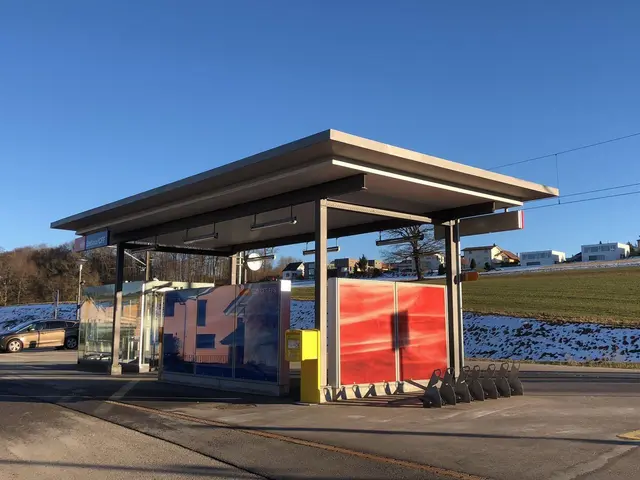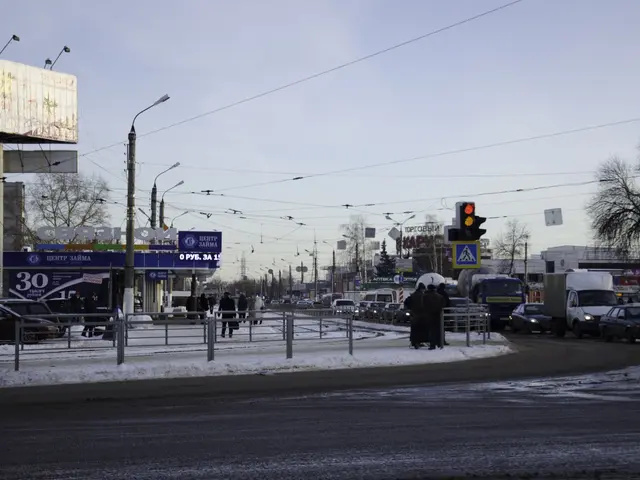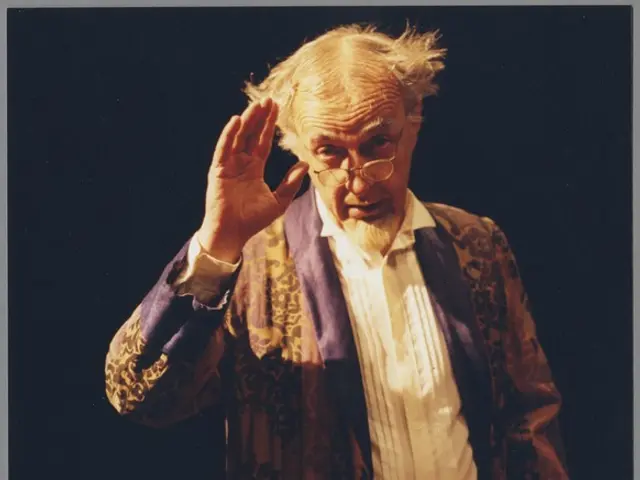Multitudes protest in Bangladesh, demanding a ban on the political party of the ex-PM.
DHAKA is abuzz with protests once more as thousands of citizens gathered outside the residence of Muhammad Yunus, the interim leader of Bangladesh, demanding the ban of Sheikh Hasina's political party.
Yunus, 84, has been the face of this interim government since the dramatic fall of Hasina's administration in August 2024 when she was ousted by student-led mass protests and went into exile as crowds stormed her palace.
The recent rally follows the sudden departure of Abdul Hamid, a former leader of Hasina's Awami League party, from Bangladesh early on Thursday. Unrest began to build when a crowd of predominantly young people congregated outside Yunus' residence on Thursday night.
The organizer of the newly established National Citizen's Party, Hasnat Abdullah, declared the demonstration's continued duration until their demands were met.
"Hasina robbed the people of Bangladesh of their democratic rights," Kamrul, a vocal member of the National Citizen's Party, asserted. "She manipulated the system to prevent any real opposition from participating in the election."
"We saw Abdul Hamid leave the country safely. The actions of certain advisers are highly suspicious. The delay in justice appears to be part of a broader plan to bring back the fallen dictator and her party," he added.
The Political Fallout
Since Hasina's ousting, Bangladesh has been grappling with a significant political transformation. Here's the lowdown on the current state of affairs:
The Interim Government
- Interim Leadership: After the fall of the Hasina government, an interim administration led by Nobel laureate Dr. Muhammad Yunus was established, facing criticism for its lack of political experience and the nation's patience for unelected governance.[1]
The Rise of New Political Parties
- New Faces: In the months following the uprising, more than 24 new political parties have emerged, accompanied by 65 further applications for registration. The potential grand total of registered parties now exceeds 120.[1]
The Demand for Electoral Reforms and Party Prohibitions
- Electoral Reforms: Discussions regarding long-overdue electoral reforms are ongoing between major political parties excluding the Awami League.[1]
- Party Ban Demand: A growing consensus advocates for the prohibition of the Awami League, the party of former Prime Minister Sheikh Hasina. Numerous protests across the country, backed by prominent groups like Shahbagh, seek the commission's review of evidence implicating the Awami League in human rights abuses and electoral system manipulation during Hasina's rule.[3][4][5]
The Ongoing Protests
- Mass Rallies: Political parties such as the Bangladesh Nationalist Party (BNP) have been rallied together for large-scale protests. The BNP is expected to perform well in forthcoming polls.[2]
- Continued Unrest: The National Citizen's Party alongside other organizations continue their protests, pleading for the ban on the Awami League.
Bangladesh faces an uncertain political future as it grapples with governance issues and a lack of public trust during this time of change. Keep an eye on this dynamic situation as it unfolds.
- The ongoing rally in Dhaka, led by Hasnat Abdullah, vows to persist until the demands for the ban of Sheikh Hasina's political party are met.
- The interim leader of Bangladesh, Muhammad Yunus, faces criticism for his lack of political experience, as he navigates the nation's uncertain political future following the dramatic fall of Hasina's administration.
- Since Hasina's ousting, more than 24 new political parties have emerged in Bangladesh, with the potential grand total of registered parties now exceeding 120.
- Discussions regarding long-overdue electoral reforms are ongoing between major political parties excluding the Awami League, while a growing consensus advocates for the prohibition of the Awami League, the party of former Prime Minister Sheikh Hasina.
- The general news in Bangladesh is dominated by war-and-conflicts, policy-and-legislation, politics, and top stories of ongoing protests, as the nation grapples with an uncertain political future.






